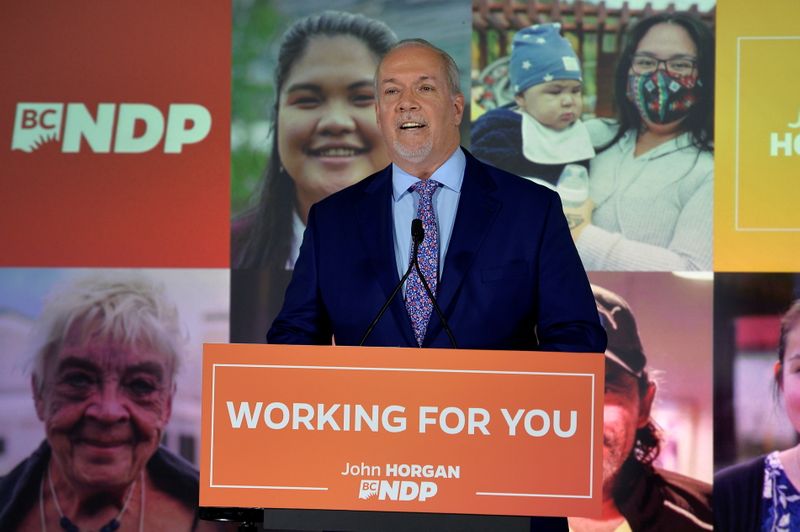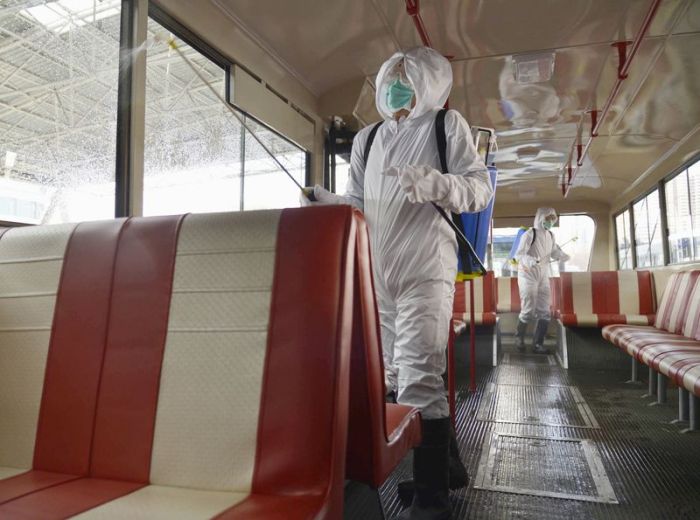(Reuters) – The left-leaning New Democratic Party (NDP) is on track to form a majority government in the western Canadian province of British Columbia, Canadian Broadcasting Corp (CBC) News projected after Saturday’s election as voters opted to stay the course in the midst of a pandemic.
The NDP has been running a minority government since 2017, with support of the province’s Green Party. NDP leader John Horgan called an election in early September, saying he wanted to ensure stability for the province as it responds to challenges presented by the COVID-19 pandemic.
The snap election call drew criticism from rival parties including the Greens, who said sending people to the polls in the middle of a pandemic was a major health risk.
NDP was projected to win 55 out of the 87 seats in the BC legislative assembly, preliminary results from Elections BC showed, with 44 seats required to form the government. The centre-right Liberal Party was ahead in 29 seats.
The NDP and Liberals were tied at 41 seats each in the last assembly.
“There are many, many hundreds of thousands votes yet to be counted (but) … One thing we know for certain is Monday, I’ll be going back to work,” Horgan said.
The pandemic resulted in more than a million of BC’s 3.5 million registered voters casting their ballots in advance or by mail-in ballot before voting day. Final results are expected by mid-November.
Horgan entered the race with a 69% approval rating in August, the highest of any premier in Canada, according to Canadian pollster Angus Reid.
BC, Canada’s third-most populous province, has had approximately five deaths per 100,000 residents – a lower rate than the provinces of Ontario or Quebec.
Prime Minister Justin Trudeau congratulated Horgan and said he looks forward to working with the BC premier to offer support to all Canadians impacted by the global pandemic.
While BC has been credited with largely managing to contain the pandemic in the first few months, it has seen cases spike in recent weeks along with the rest of Canada.
BC finances were hit by the economic downturn triggered by COVID-19, going from a projected surplus of C$227 million ($171 million) for financial year 2020-21 to a forecasted C$12.8 billion deficit.
(Reporting by Moira Warburton and Denny Thomas; Editing by Lincoln Feast and Nick Zieminski)



























